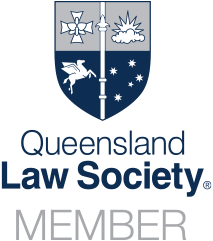Practice Areas
We think “outside the box” for workable, practical solutions to suit your situation
OUR PRACTICE AREAS
Separation or Divorce
We are experts in family law, which mainly includes parenting arrangements and property division. Whether you’re thinking about separation, or already separated, book a no obligation initial appointment with KEA Legal to find out your rights and responsibilities in relation to parenting and/or property matters.
We will help you navigate the family law issues that follow a relationship breakdown, whether a marriage or defacto relationship. Our goal is to help you move forward with certainty, as quickly as is reasonably possible.
We don’t judge. We understand that separation and divorce can be very difficult for everyone involved and that the circumstances of each separation are unique. We know separation is rarely easy. So we take the time to listen to and understand the needs of each of our clients.
At your very first appointment, we will give you professional and accurate advice and a plan for your way forward. We’ll explain your options so that you have the confidence to make decisions that are right for you and your family.
We are committed to keeping things simple, so court proceedings are always a last resort. We will always try negotiation and mediation to reach a collaborative outcome, wherever possible. We can customise practical options to suit your individual situation – with manageable fees and a minimum of fuss.
If safety is a concern for you, your family members, or property, see our domestic and family violence section.
See our About Us page under Separation or Divorce to see our fixed fees for these services.
Domestic & Family Violence
Are you experiencing behaviours that make you feel threatened, afraid, manipulated or controlled? Or have you been served with an Application for a Protection Order?
Protection orders
In Queensland, “DVOs” or “AVOs” are called protection orders. Generally, these terms refer to a court order that protects the Aggrieved (the victim), by limiting the behaviour of the Respondent (the person who is using or threatening domestically violent behaviours). Queensland Police can also issue a Police Protection Notice which is basically a temporary protection order that they can put in place immediately, until the matter can be listed before the court.
A protection order always includes the mandatory conditions that the Respondent must be “of good behaviour” toward the Aggrieved, and anyone else named on the order (which may be children, family or associates of the Aggrieved) and not commit any acts of domestic violence. The court may also include other conditions prohibiting the Respondent from approaching, contacting, or trying to locate the Aggrieved or other named persons. Protections orders and Police Protection Notices can also declare that the Respondent is not allowed to visit or live at the Aggrieved’s address, even if both usually live there together. This depends on the severity of the allegations in the application for a protection order. Police Protection Notices may also include a specified “cool down period”.
A protection order is a civil matter so it does not show on a criminal history check. However, once a protection order or Police Protection Notice has been served on the Respondent, any breaches of the conditions are criminal offences that may be charged by the police. Respondents are also prohibited from having a weapon or a weapons licence while an order is in place.
Who can apply for a domestic violence protection order?
People in the following types of relationships are able to apply for domestic and family violence protection orders as the Aggrieved:
- a person who is (or was in) an intimate personal relationship with the Respondent (for example, dating, de facto, engaged, married, or previously in any of these types of couple relationships)
- a person who has (or did have) a family relationship with the Respondent (for example, a parent, step parent, in-laws, sibling or cousin, etc)
- a person in an informal care relationship, where one person is dependent on the other person for help in an activity of daily living, like dressing and cooking for them.
The police may also decide to apply for a domestic violence order for anyone in the above types of relationships, even if both of you don’t agree.
Changing a domestic violence protection order
The Aggrieved, the respondent or any other person named in the order can apply to vary (change) the domestic violence protection order. However, if the police have taken out the order they can oppose the application.
The aggrieved or the respondent can apply to change:
- the conditions on the order
- the people named on the order
- the length of the order (to make it shorter or longer).
Other people that may be named on the order (for example, friends or family) can only apply to change the parts of the order that relate to them.
Protection orders and family court orders
A protection order can be made even if there are family court or other orders in place. The magistrate must be made aware of any such orders so that they can consider those before deciding to make a protection order.
Cross applications
A cross application is where both parties apply for protection orders against each other. Should this occur, the court will join the matters to be heard together if possible, including transferring them to the same location.
If you’ve been served with a protection order or an application for a protection order
We are experts in domestic violence applications and urge you to make a no-obligation initial appointment with us to find out what your options are.
In the meantime, ensure that you carefully read and follow the conditions of any protection order (or Police Protection Notice), even if you don’t agree with it. Remember that breaching the conditions may lead to criminal charges against you. Whether you have been served with an order, or just an application for a protection order, take careful note of the date and location of the listed court date. If you do not attend court, a final protection order (for five years) may be made in your absence.
So that you are aware of your options and the processes involved, it is important to seek legal advice before the court date, ensuring you provide all paperwork received. KEA Legal can assist with legal advice, document preparation, and legal representation, if required, whether you are the Aggrieved or the Respondent.
See our About Us page under Domestic & family violence to see our fixed fees for these services.
Financial Agreements
Whether you’re thinking of doing a “prenup”, or looking to finalise a financial agreement following separation, KEA Legal can advise you on the best course of action to ensure both parties are protected.
Pre-nuptial agreements, Binding Financial Agreements and consent orders
“Prenups” exist in Australia, but they are formally known as Binding Financial Agreements.
Binding Financial Agreements can be made between de facto or married couples regarding their financial matters – before or during the relationship, or after separation.
We can draft your agreement to ensure it will be binding and comply with the relevant legislation. If properly made, these agreements are legally binding on both partners if the relationship breaks down.
We can also provide a certificate of independent legal advice for parties considering an agreement drafted by your partner or their lawyers.
See our About Us page under Financial Agreements to see our fixed fees for these services.
Conveyancing
We provide residential conveyancing services, including buying or selling a home or investment property, as well as transfers needed to finalise property settlements. We do not handle commercial property transactions.
Buying or selling your home can be an overwhelming experience and each property transaction is unique. There are many aspects of the transaction to consider such as arranging finance, dealing with building/ pest and pool fencing inspections, whether extensions of time should reasonably be requested or granted – and usually all of this takes place while you’ll preparing to move house!
We are dedicated to making your conveyancing experience straightforward and as stress-free as possible. We attend to all legal requirements to transfer ownership of the property – this means ensuring all documents are in order, negotiating any changes that might be required, and proactively liaising with your real estate agent, broker and finance institution to ensure a smooth and on-time settlement. We use electronic settlement processes whenever possible.
We encourage our clients to contact us before they enter into a contract to ensure that they receive the necessary advice before any legal obligations are triggered.
We offer fixed priced services for residential conveyancing, with at-cost pricing for searches and all other costs.
What conveyancing generally includes
We act on your behalf from pre contract advice and drafting to settlement. Our services include:
- review of Contracts
- compliance with due dates and obligations
- liaising with your broker, banker and any third parties associated with the transaction
- conducting searches and due diligence
- completing transfer and other documents required by your financier
- preparation of settlement figures
- arranging and attending settlements
- lodging documents for registration and
- advising Council and utility providers that the property ownership has changed.
See our About Us page under Conveyancing to see our fixed fees for conveyancing services.
Wills & Power of Attorney
Wills
If you do not have a Will when you die your assets will be divided in accordance with the most current legislation. The legislation will not necessarily divide your assets in the manner you may wish. If you do not have a Will on your death this can cause more unnecessary stress and complications for your loved ones at a time that is already emotional.
It is really important to ensure you have a current Will at all times, especially if you have assets, dependents or very specific wishes. You can make a direction in your Will as to who should be the legal guardian of your minor children in your place.
It is equally important to ensure that your Will is kept up to date if your personal circumstances change. For example you should consider updating your Will when you enter into a relationship or get married, or when a relationship dissolves, when you acquire valuable assets, when you have children or acquire a new business.
There are certain rules about who should be provided for in your Will. If you have estranged family members and do not wish to provide for them in your Will you need to ensure that this is documented appropriately. Our team can discuss your specific circumstances and can advise you on all matters relating to Wills.
Power of Attorney
You should also make sure you have someone that you trust legally appointed to act as your Attorney if you are unable to make decisions for yourself. You can also appoint substitute attorney’s to step in if your first Attorney cannot act for any reason.
There are two types of power of attorney:
A General power of attorney is used to appoint someone to make financial decisions on your behalf for a specific period or event, such as if you’re going overseas and need someone to sell your house or pay your bills.
An Enduring power of attorney is used to appoint someone to make financial and/or personal decisions on your behalf.
Financial decisions relate to your personal assets, real estate, bank accounts and anything else in your personal name. You can nominate whether you want the start date to be straight away, or at some other date or occasion, such as if you lose capacity to make such decisions.
Personal decisions relate to your personal care and welfare, such as the treatment you receive if you lose capacity. Your attorney’s power for personal decisions only commences if you lose capacity to make such decisions.
What we recommend
We recommend that you have each of these documents in place to complete your asset and estate planning. Your preparation and organisation now will mean that the burden on your loved ones is minimised in the event you lose capacity or pass away. We can also assist with an Advanced Health Directive if you wish, a legal document designed to provide detailed information about your medical wishes during a life threatening event.
We can assist with appropriate legal advice and prepare these documents for your execution.
See our About Us page under Wills & Power of Attorney to see our fixed fees for these services.
Customised Legal Services
You might not want or need to hire a lawyer to represent you for court. We can check what you’ve written, draft documents for you, and/or prepare you for going to court.
Xxxx xxxx xxxxxxxxxxxxxx xxxxxx xxxxxxxxxxx xxxx xx xxxxxxxxxx xxxx xxxxx xxxxx Xxxx xxxx xxxxxxxxxxxxxx xxxxxx xxxxxxxxxxx xxxx xx xxxxxxxxxx xxxx xxxxx xxxxx
Xxxx xxxx xxxxxxxxxxxxxx xxxxxx xxxxxxxxxxx xxxx xx xxxxxxxxxx xxxx xxxxx xxxxx Xxxx xxxx xxxxxxxxxxxxxx xxxxxx xxxxxxxxxxx xxxx xx xxxxxxxxxx xxxx xxxxx. xxxxxxxxxx xxxx xxxxx.
See our About Us page under Customised Legal Services to see our tailored services to suit your needs.




